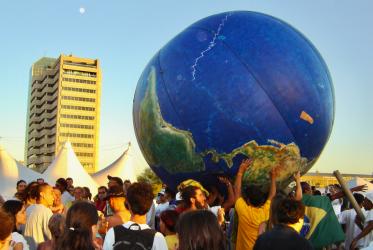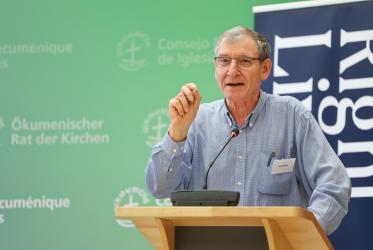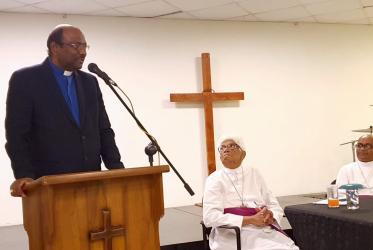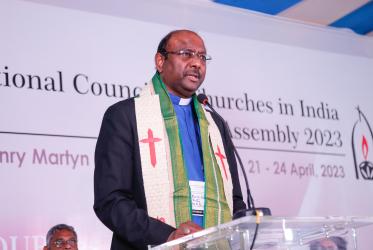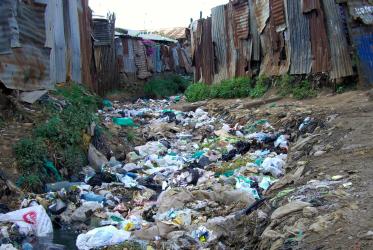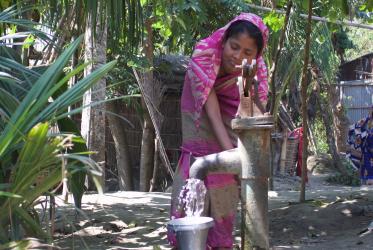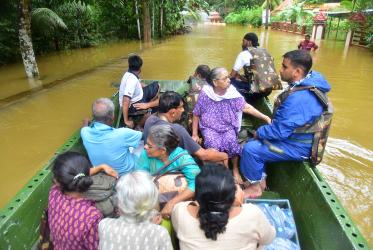Displaying 1 - 20 of 36
09 February 2024
Ukraine: Responding to humanitarian need
08 September 2022
Climate crisis fuels existing water injustice
27 October 2021
On World Toilet Day, sanitation is “an issue of justice”
16 November 2020
Churches should use their voice on climate change
26 February 2020
New WCC “Eco Ambassadors” pledge to protect our ecology
06 January 2020

